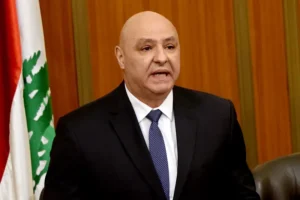
Computer generated 3D photo rendering.
The Federal Government should look beyond monetary policy tools in its fight against inflation, the International Monetary Fund (IMF) has said.
It urged the authorities to, among others, channel investments to infrastructure, education and healthcare rather than frivolous spending.
IMF directors, Tobias Adrian and Victor Gaspar, made the disclosure in a report, titled: “How fiscal restraint can help fight inflation.” The Report was released yesterday.
The National Bureau of Statistics (NBS) latest Report showed that Nigeria’s inflation rate jumped from 20.77 per cent in September to 21.09 per cent last month.
The inflation figure was largely driven by soaring food and energy prices.
Gaspar is director of the Fiscal Affairs Department, and Adrian the financial counsellor/director of the Monetary and Capital Markets Department.
Adrian explained that while monetary policy has the tools to subdue inflation, fiscal policy can put the economy on a sounder long-term footing through investment in infrastructure, health care and education.
He called for fair distribution of incomes and opportunities through an equitable tax and transfer system and provision of basic public services.
According to Adrian, government’s support was vital to help the people and firms survive pandemic lockdowns and support the economic recovery.
“With many people still struggling, governments should continue to prioritize helping the most vulnerable to cope with soaring food and energy bills and cover other costs—but governments should also avoid adding to aggregate demand that risks dialing up inflation. In many advanced and emerging economies, fiscal restraint can lower inflation while reducing debt,” he stated.
Adrian added that central banks are raising interest rates to dampen demand and contain inflation, which in many countries is at its highest levels since the 1980s. Because rapid price gains are costly to society and detrimental to stable economic growth, monetary policy must also act decisively.
Gaspar said the overall fiscal balance, however, affects the demand for goods and services and thrigger inflationary pressures.
He explained that a smaller deficit cools aggregate demand and inflation, so the central bank doesn’t need to raise rates as much.
Gaspar said: “Moreover, with global financial conditions constraining budgets, and public debt ratios above pre-pandemic levels, reducing deficits also addresses debt vulnerabilities.
“Conversely, fiscal stimulus in the current high inflation environment would force central banks to slam on the brakes harder to curb inflation.”
He advised policymakers to provide strong protections to those in need, while paring back elsewhere or raising additional revenues to reduce the overall deficit.
Gaspar said: “Fiscal responsibility – or even consolidation where needed – demonstrates that policymakers are aligned against inflation.
“When fiscal adjustment is sustained, ideally through a medium-term fiscal framework that sketches the direction of policy over the next few years, it also addresses looming pressures on debt sustainability.
“These include aging populations in most advanced and several emerging economies, and the need to rebuild buffers that can be deployed in future crises or economic downturns.”
He said that faced with high food and energy prices, governments can improve their fiscal position by moving from broad-based support to assisting the most vulnerable – ideally, through targeted cash transfers.
He said: “Supply shocks are long-lasting, attempts to limit price increases through price controls, subsidies, or tax cuts will be costly to the budget and ultimately not be effective. Price signals are critical to promote energy conservation and encourage private investment in renewables.
“The desirable fiscal stance and measures underpinning it will depend on country-specific circumstances, including current inflation rates and longer-term considerations such as debt levels and developmental needs.
“In most countries, higher inflation strengthens the case for fiscal restraint, calling for raising revenue or prioritizing spending that preserves social protection and growth-enhancing investments in human or physical capital.”







